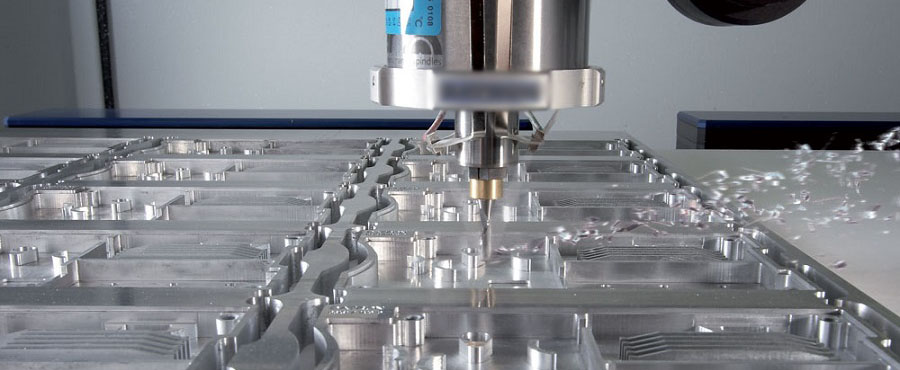With the continuous advancement of modern engineering technology, there is an increasing demand across various industries for high-quality and high-precision precision parts. In this field, aluminum materials have become one of the top choices due to their outstanding performance and multiple advantages.
Aluminum alloy parts can be subjected to various post-processing techniques such as sandblasting, polishing, drawing, electroplating, spraying, anodizing, laser engraving, and more. Aluminum alloy components exhibit a unique metallic texture, are lightweight, have excellent heat dissipation properties, and are favored by various industries.
As the application of aluminum alloy parts continues to expand, the quality and efficiency of aluminum alloy component processing, especially aluminum alloy CNC machining, have also received increasing attention from manufacturing companies. This article will delve into the various advantages of aluminum materials in precision parts machining and why they have become the preferred choice in numerous industries.
The Advantages of Aluminum Material in Precision Parts Machining
Lightweight Design:
Aluminum is a lightweight metal with low density, yet it possesses excellent strength and stiffness. This makes aluminum an ideal choice for achieving lightweight designs across various industries. Particularly in the automotive and aerospace sectors, lightweight design can significantly reduce fuel consumption and carbon emissions, enhance energy efficiency, and lower operating costs.
Outstanding Thermal Conductivity:
Aluminum is an excellent thermal conductor with high thermal conductivity. This makes it widely used in the field of thermal management, especially in electronic devices and automotive engines. Aluminum components can rapidly dissipate heat, prevent overheating, and ensure the stable performance of equipment or engines.

Good Machinability:
Aluminum material is easy to machine, including processes such as cutting, milling, drilling, and welding. This machinability makes it an ideal choice for manufacturers to easily achieve the desired complex shapes and sizes, meeting the requirements of various applications.
Corrosion Resistance:
Aluminum possesses a natural oxide layer that provides a certain degree of corrosion resistance. This makes aluminum parts highly durable in outdoor applications, marine environments, or applications exposed to humid conditions, as they are less susceptible to corrosion and oxidation.
High Recyclability:
Aluminum is a highly recyclable material, which can be recycled and reused almost indefinitely. This helps reduce resource waste, lower environmental impact, and align with the principles of sustainability. Aluminum’s sustainable properties make it widely applied in green manufacturing and environmentally-friendly fields.
Superior Electrical Conductivity:
Aluminum has excellent electrical conductivity, which is crucial in electrical and electronic applications. It is used in the manufacturing of conductors, cables, and electronic components, effectively conducting electric current and reducing energy losses.
High Assemblability:
Aluminum materials typically exhibit excellent assemblability, allowing them to easily integrate with other materials and components. This is advantageous for manufacturing complex precision devices and systems, expediting the assembly process.
Cost-Effectiveness:
Aluminum is a relatively inexpensive material compared to other high-performance metals, making it cost-effective. This helps lower production costs, enabling more businesses to afford the manufacturing costs of high-quality parts.
Considerations When Using Aluminum Material in Precision Parts Machining
Aluminum materials are highly favored in the field of precision parts machining. However, when machining precision parts using aluminum, several key considerations must be taken into account to ensure the quality, performance, and reliability of the final product. Here are some important factors to consider when using aluminum materials in precision parts machining.
Material Selection:
Different types of aluminum alloys are suitable for different applications. When selecting materials, factors such as strength, hardness, corrosion resistance, and thermal conductivity need to be considered. Ensure that the chosen aluminum material meets the requirements of part design and the operating environment.
Machining Parameters:
The machining parameters of aluminum materials need to be precisely controlled to avoid rapid tool wear or overheating. Proper cutting speeds, feed rates, and cutting depths are critical to ensuring machining quality. Specifically, care must be taken to avoid excessively high cutting speeds, which could lead to thermal deformation of the aluminum material.
Tool Selection:
Choosing the right cutting tools is crucial for machining aluminum materials. Typically, hard alloy tools or multi-blade tools are good choices for machining aluminum. The selection of cutting tools should take into account the required machining precision and surface quality.
Cooling and Lubrication:
Cooling and lubrication are essential during the machining of aluminum materials. Using appropriate cutting fluids or coolants helps reduce tool temperatures, prolong tool life, and minimize chip buildup. Additionally, cooling and lubrication also help prevent oxidation of aluminum materials.
Chip Management:
Aluminum material chips are typically long and can easily wrap around the tool or workpiece. Therefore, effective chip management is crucial. Using suitable chip removal methods or cleaning equipment ensures that chips do not interfere with the machining process.
In conclusion, aluminum materials offer multiple unique advantages in precision parts machining. Their characteristics, such as lightweight design, excellent thermal conductivity, good machinability, corrosion resistance, high recyclability, superior electrical conductivity, high assemblability, and cost-effectiveness, make them widely used in various fields, including automotive, aerospace, electronics, and medical equipment. The outstanding performance of aluminum materials not only enhances product quality but also drives technological advancements and promotes sustainable development across industries. In the future, with the development of new manufacturing technologies, aluminum materials will continue to play a key role in the field of precision parts, meeting the growing market demands.



